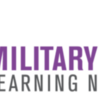Extension educators are content creators. Whether they prepare PowerPoint slides for a webinar, write a blog or social media post, prepare for an interview, or assemble a newsletter, they are constantly striving to create content that is current, relevant, and actionable.
At a recent online conference, the Plutus™ Impact Summit, the following eight tips for personal finance content creation were shared:
- Address “Pain Points” and Goals– Help people by addressing topics that are causing them personal distress. An example is paying off accumulated debt or saving money. Stress that every small, positive step they take has a ripple effect.
- Pay Attention to Your Brand– Your brand is what people think about you as a professional. Even if you do not have a formal branding strategy, you are doing things as a brand anyway. Strong brands have four components: Mission (a “why” for what you do), Values (guiding principles for your work), Personality (human characteristics), and Positioning (how you distinguish yourself from competitors).
- Tell “Relatable” Stories– Stories of everyday people (versus rock stars and sports players) can be very powerful. People want to hear about people like them who addressed the same issues that they are facing. The most interesting part of a story is the steps someone took to overcome obstacles, not the happy ending.
- Avoid “Restriction Words”- Words or phrases that imply restriction and deprivation do not resonate with audiences. Some examples include: “cut back,” “cut out,” “don’t,” “reduce,” and “eliminate.” Personal finance content delivery and financial counseling are as much about psychology as money.
- Help Clients Set Reasonable Expectations– Whether it is saving money or reducing debt, people often want quick results. In reality, savings and debt repayment take time. A good phrase to use with clients who are just starting to tackle their finances is “Don’t compare your beginning with someone else’s end.”
- Repurpose Content- Work smarter, not harder to get double (or triple) duty from previous work. For example, video clips from webinars, audio clips from podcasts, text messages from tweets, and digital content from print content. Create a system to easily retrieve your materials.
- Practice Self-Care- The summit began with “breath work” (deep breathing), which has been shown to reduce stress and anxiety, boost immunity, and increase happiness. Participants were encouraged to incorporate healthier habits into their lifestyle (e.g., sleep and physical activity) and to replace “imposter syndrome” (i.e., thoughts that you are not “good enough”) with positive self-confidence.
- Don’t Under-Estimate Your Impact– You never know who is consuming your content or the difference that it is making in people’s lives. Extension educators can make the world a better place. Think about how you will impact your corner of the world.
For additional content related to working with clients on personal financial issues, visit the MFLN Personal Finance Team. Free CEUs are available for AFCs, CPFCs, and CFLEs through our webinars.
Written By:
Barbara O'Neill



Comments (0)